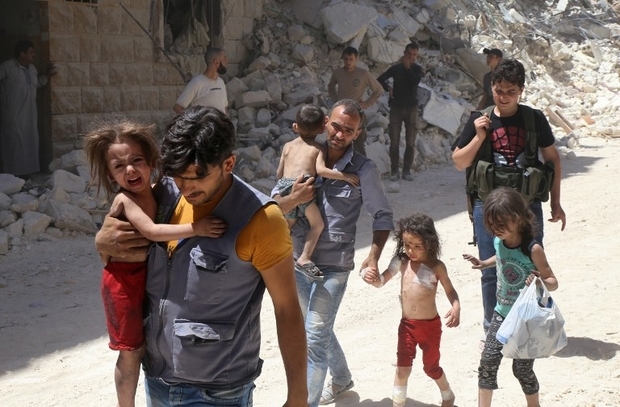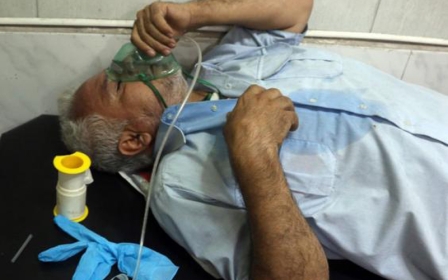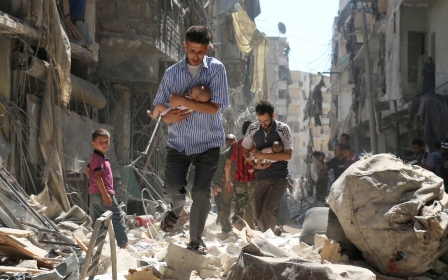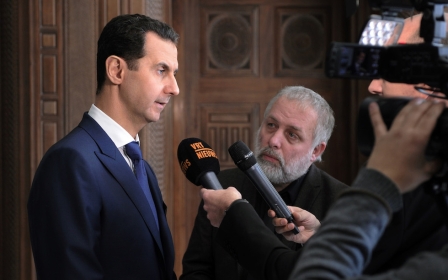Russia used 'war on facts' to deny Aleppo bombings: Report

Pro-government forces hit hospitals repeatedly, dropped incendiary and cluster bombs on residential areas and used chemical weapons during the battle of Aleppo in Syria last year, a report by the Atlantic Council, a Washington-based think tank said.
Several ceasefires were negotiated during the months-long siege of Syria's once largest city, which was fully recaptured by forces loyal to President Bashar al-Assad in December. According to the report released on Monday, the government used the halts in fighting to prepare for offensives and shift its focus to different frontlines.
"These breaches weakened the United States’ moderate opposition partners and undermined the confidence of US allies in the region," the report reads.
The report also accuses opposition forces of indiscriminate bombing of government-controlled areas of Aleppo. "However, there is little equivalence between the two sides when considering the scale and resources employed in the conflict," it adds.
The investigation relied on eyewitness accounts, photographs, video footage and satellite images.
'Confusing and disorienting'
The report also accused Damascus and Moscow, which came to Assad's aid against the rebels, of engaging in a misinformation campaign, which it described as "nothing less than a war on objective facts".
"This was aimed less at convincing than at confusing and disorienting rivals, sapping confidence, sowing disunity and making truth entirely subjective, such that one party’s lie became just as good as another’s fact," the report, titled Breaking Aleppo, reads. "This obfuscation, even in the face of clear evidence of regime or Russian wrongdoing, exposed the 'post-truth' era of international relations."
For example, a hospital operated by the Syrian American Medical Society was bombed three times between September and October, the report said. The Russian ministry of defence tried to deny the attacks by releasing satellite images of the hospital that showed that it had not been targeted. But the report concluded that the Russian footage was deceptive.
"This misinterpretation of satellite and aerial imagery by the Russian MoD has been a frequent occurrence, both in the conflict in Syria and previously in response to the downing of flight MH17 in Ukraine," the report said. "It is fair to say that the MoD’s use of such imagery has revealed so many inaccuracies that it should be considered unreliable unless supported by corroborating independent evidence."
New MEE newsletter: Jerusalem Dispatch
Sign up to get the latest insights and analysis on Israel-Palestine, alongside Turkey Unpacked and other MEE newsletters
Middle East Eye delivers independent and unrivalled coverage and analysis of the Middle East, North Africa and beyond. To learn more about republishing this content and the associated fees, please fill out this form. More about MEE can be found here.




